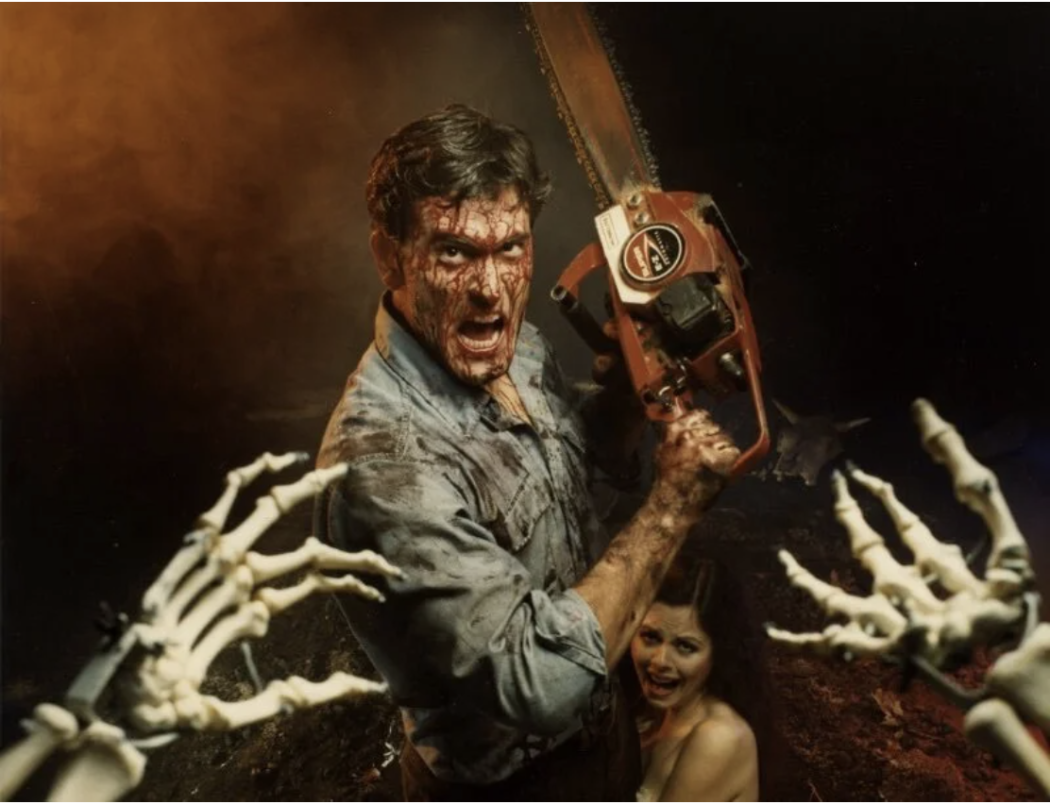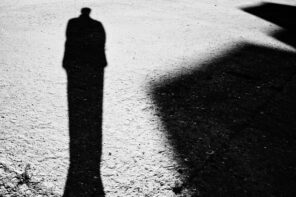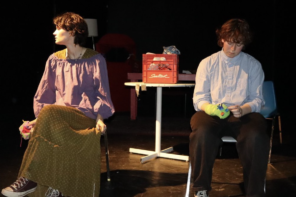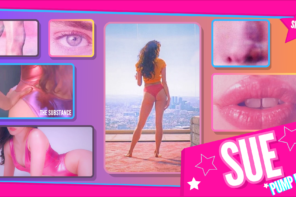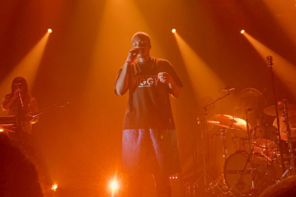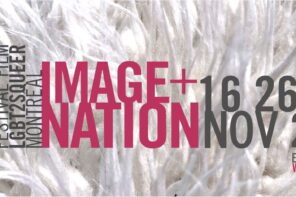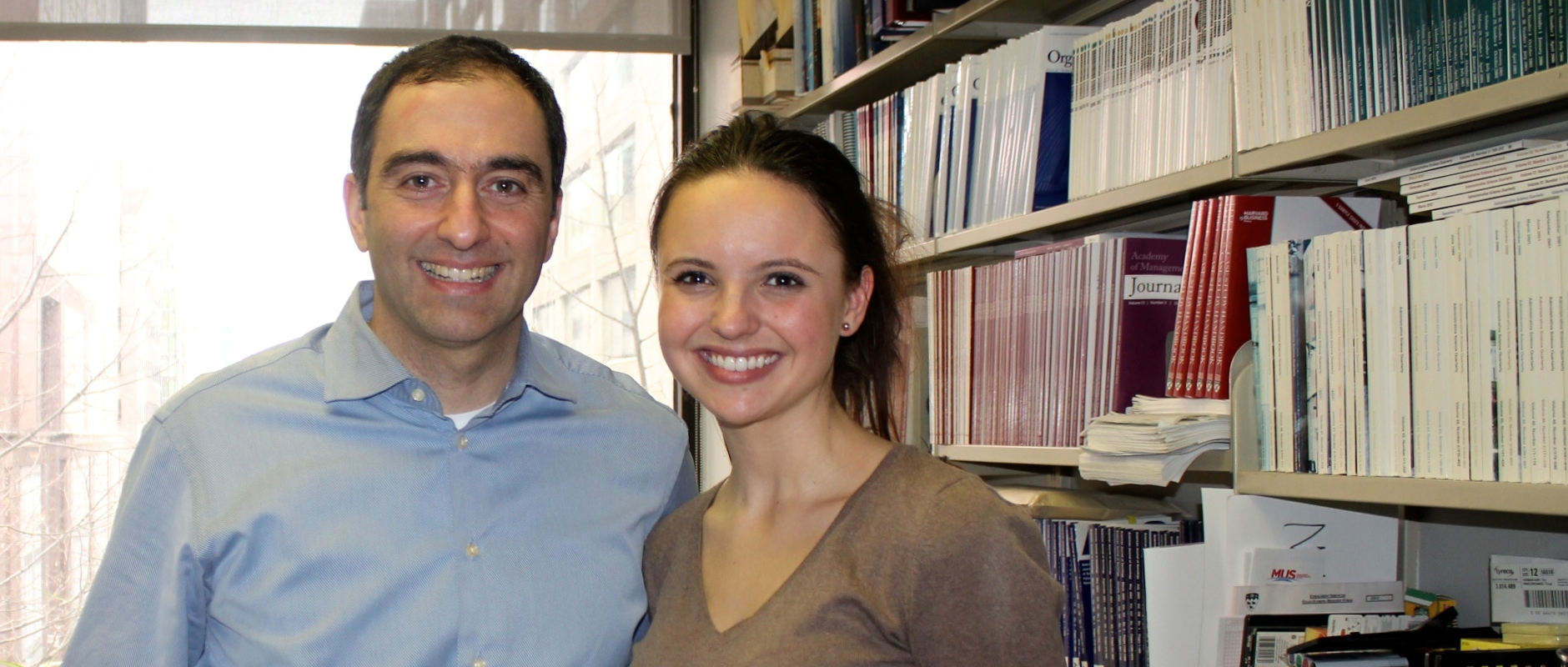Last month, Cinema Du Parc ran a screening of Evil Dead II (1987) as part of their Halloween-themed Minuit au Parc event. The line was long and the theater was packed. Evil Dead II has shockingly good reviews for what it is — a horror-comedy sequel from the 1980s. After seeing the movie, I understood why.
Evil Dead II is a masterful comedy. It establishes tone beautifully — not so slapstick that it no longer feels like horror, and not so scary that the humor feels misplaced. It navigates the genre deftly, weaving tropes from various horror subgenres together to create a Frankenstein’s Monster of a film: a hand protrudes from the grave (zombie); an animalistic force comes out only by nightfall (werewolf); objects of the house shake with the force of a dead spirit (ghost); a point-of-view shot follows the killer as he stalks his victim (slasher). The film uses whichever horror tropes work best for it, reclaiming cliches rather than abiding by them. By moving away from the tonal convention of horror, the movie is able to escape categorization altogether. Evil Dead II is a horror-comedy that loves its genre. The tropes are certainly campy in this movie, but more than anything, they feel familiar. They are the basis for a comedic language rather than the punchlines themselves.
However, if I were to imagine the Dark Age of Horror, my primary nightmare would be more movies like Evil Dead Rise: an ugly exercise in profit, bogged down by hideous and lazy CGI, thoughtless and indistinguishable, gesturing obviously at meaning without the desire or ability to do the work of earning it.
Since Evil Dead II, there have been three movies in the franchise. The most recent, Evil Dead Rise, was released this year. There have been many articles that argue that horror has drastically declined in quality, or that innovation in the horror genre is more or less dead. I tend to find these descriptions melodramatic — there are numerous fantastic horror movies in our time (some personal favorites from the last five years: all of Jordan Peele’s filmography; Midsommar; Les Chambres Rouge (dir. Pascal Plante); Titane and Raw, both directed by Julia Ducournau). However, if I were to imagine the Dark Age of Horror, my primary nightmare would be more movies like Evil Dead Rise: an ugly exercise in profit, bogged down by hideous and lazy CGI, thoughtless and indistinguishable, gesturing obviously at meaning without the desire or ability to do the work of earning it.
Unlike Evil Dead II, Evil Dead Rise takes itself nauseatingly seriously. It seems to want very badly to say something important. The poster for the movie shows the mother of the film, Ellie, in her zombie state, holding her children while she smiles maniacally at the viewer. The text reads: “MOMMY LOVES YOU TO DEATH.” The film thinks it has something to say about motherhood, and it really wants us to know that. Once possessed, Ellie has lines such as: “I’m free now… free from all you t****-sucking parasites.” If we are supposed to take this movie seriously, what does this line signify? Does possession — or whatever happens when the spirit/demon/death takes over — release the repressed and darker feelings within its victim? If the movie is interested in exploring repressed familial resentment, possession is the worst possible framing device because it is characterized by a loss of identity. Is this quote the opposite of what she feels? Does the spirit of the dead reverse the identity of its victim? If so, then why does Deadite (the series’ language for possessed-by-Death) Ellie repeatedly mock her sister as a “groupie,” which she does before possession as well? Tension in the family is established at the beginning of the film, so the idea that there is no emotional truth in this aggression doesn’t work either.
Horror can be a perfect medium for exploring certain difficult themes, particularly ones that often don’t manifest physically — the unspoken tension can be brought to the surface and made undeniable by violence. But a film that includes family dysfunction and a film that is about family dysfunction are two very different things. The premise of the movie — the spirit of the dead possessing humans with the intent of taking their souls — doesn’t work in this context as an allegory or even a device to explore its purported subject matter, which makes all the heavy-handed work they do to develop the theme unnecessary and futile.
Grief makes sense as a theme for an Evil Dead movie. Through that lens, the Deadites could represent a universal and complicated desire: the hope that our dead come back.
Evil Dead II, ironically, does understand the possible thematic weight of its premise. In its sparse emotional moments, the film explores the grief of its characters as they have to battle the demonic version of their lost loved ones. Grief makes sense as a theme for an Evil Dead movie. Through that lens, the Deadites could represent a universal and complicated desire: the hope that our dead come back. To be clear, there’s no need for an emotionally weighty theme in Evil Dead Rise, but if it wanted — as it so clearly did — to explore a serious subject, this is a vision of a movie that could have worked.
Maybe the effort to make itself seem important is the Evil Dead franchise’s attempt to answer the question “Why do we need another movie in this series?” The answer it provides, “because it can unpack real, gritty themes,” is both untrue and unconvincing even if it were true. There are infinite movies, even in the horror genre, better suited to the task. If Evil Dead were a character in one of its own movies, it has already been killed off; this most recent installment is just its Deadite form, animated by a new and sinister spirit, pretending to be alive.
Rather than just bemoaning the pitfalls of some prominent contemporary horror movies, we can look at these two films as lessons for what makes horror movies work. Evil Dead Rise fails because it misunderstands itself and drastically overestimates its potential, which makes for an incoherent and uncompelling experience. Evil Dead II, for all its goofiness, knows what it is doing. It understands the absurd comedy in the excessive violence of the genre, and it recognizes the emotional weight of its premise. Horror can and should be more than Evil Dead Rise; Evil Dead II can remind us of that.

